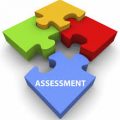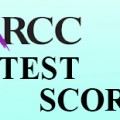
PARCC testing is right around the corner, and chances are you and your child are gearing up for testing season. The Partnership for Assessment of Readiness for College and Careers (PARCC) is a group of 20 states who worked together to develop a common set of computer-based K–12 assessments in English and math. These new assessments are linked to the new Common Core State Standards (CCSS).
PARCC Test Practice: Online Resources for Your Children
After the adoption of the Common Core standards, the states needed new assessments that were aligned with the new standards. These tests were developed in response to both the standards and the request of parents and educators asking for a better way to assess students. The goal of these new tests is to provide a better measure of a student’s critical thinking and problem-solving skill, as well as their ability to clearly communicate.
As your child’s parent, I am sure you have worked hard to ensure your child is prepared for PARCC testing. However, one area you and your child may not be prepared for is the new PARCC terms. Previous terms found on tests may no longer be valid on the new tests. Along with the new assessments, terms may have been modified to more clearly reflect the language used in PARCC assessments.
• Assessment System: The PARCC assessment system is a solid set of tests that students will take during the school year that include comprehensive assessments as well as speaking and listening assessments. These tests are designed to better inform students, teachers and parents on how well a child is learning during the school year.
• Analytic Writing: Writing that focuses on evidence and logical integration. This type of writing uses framing of concepts to help advance an argument or convey an idea.
• Anchor Text: Used on the ELA/Literacy Assessment, students are expected to be able to analyze topics that are presented throughout several texts. The anchor text introduces the overall topic.
• Diagnostic Assessment: These assessments are optional and are available throughout the year. Designed to measure a student’s strengths and weaknesses, teachers can use a diagnostic assessment to inform instructional strategies. Results then provide educators with information regarding what standards a student has mastered, and which ones need more attention.
• Field Test: Field tests are used to examine the psychometric quality of items and obtain critical information about testing procedures. The data is then used to help inform test development.
• Formative Assessment: These tests were created to help provide feedback to teachers, which are then able to adjust how they teach to improve student learning. These assessments can be given several times throughout the school year.
• Performance-Based Assessment (PBA): These assessments are administered three-quarters of the way through the school year. The results are combined with the end of the year assessments and help determine the overall PARC score in each content area. Math PBA’s focus on reasoning and modeling and have questions that require long and short responses. The literacy PBA focuses on reading comprehension and writing while analyzing texts.
• Released Item: Intended to help build understanding regarding the types of performances PARCC expects out of students. These items will be released by PARCC after each assessment is administered.
• Scale Score: Derived from responses by students on the assessment, the scale score is a numerical score that summarizes the overall level of performance attained by a particular student. Scale score shows what a student knows and what they can do.
• Validity: How well the accumulated evidence and theory bear the interpretations of the specific test scores.
• Vertical Scale: A one -dimensional scale that allows students to be tracked and monitored as the progress through school. It tracks their educational growth as they continue their learning continuum. This allows educators to obtain a correct measurement of how well a student has gained over time.
Parents, as you are working hard to prepare your child for the PARCC test, it is important to also familiarize them and yourself with common terms related to the PARCC assessment. Knowing the definition of these terms can be directly related to how well your child may do on the PARCC test.




